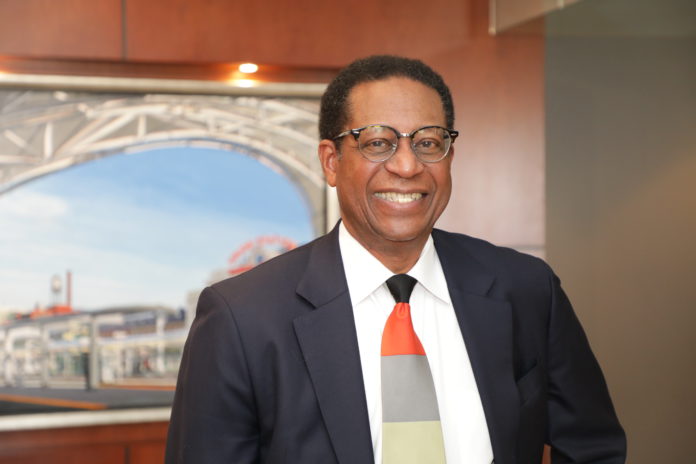

Former defense sites across the country can be valuable land, if not for the leftover explosive devices sometimes found littering them from decades past.
For instance, Mockingbird LLC, a New Jersey-based developer, had been sitting on land for decades that the developer thought was simply Orlando swampland. It wasn’t until after the land had gained enough value that Mockingbird wanted to sell it that the developer learned it was home to unexploded military ordnance — referred to as UXO. It was so well hidden that at one point, a worker accidentally set off a World War II explosive. Mockingbird had thousands of acres of land that it couldn’t develop in order to sell it without first cleaning it up.
Enter Hubert Farbes.
Farbes, a Brownstein Hyatt Farber Schreck shareholder who handles a wide range of construction and real estate matters, has deep experience in working on issues involving cost recovery for developers in cleaning up UXO under the Comprehensive Environmental Response, Compensation and Liability Act.
CERCLA, more well known as the Superfund law, allows for the cleanup of contaminated land. It also allows landowners to recover money from the government for land that it contaminated, such as by leaving behind explosive devices from military exercises. Doing the cleanup, and reclaiming costs incurred for that cleanup, on a voluntary basis involves following strict guidelines that can be prohibitive to many, though. A developer who unknowingly bought contaminated land has to have a lot of money and the land has to have a lot of value to make the effort worthwhile.
Farbes, over the years, has worked on several such matters and has been approached to handle several more that didn’t end up being worthwhile to the developers. He’s been handling CERCLA cases since the mid-1980s, not long after CERCLA was passed, and he handled the UXO cleanup and development of the Lowry Bombing and Gunnery Range near Denver. He’s handled about five other similar matters between then and now.
“The thing I think I bring to help someone who’s really interested in this is to help them understand the character of the risk they have to undertake,” Farbes said. “There’s a significant financial risk you have to be prepared to carry because this is cost recovery. You can’t get it funded by somebody else. You have to do it yourself.”
In the Mockingbird matter, Farbes’ team at Brownstein helped the developer conduct its own investigations for and get approval of a plan to do a voluntary cleanup of the Florida land. The original cost estimate was approximately $25 million — an amount Mockingbird was willing to take on — and Mockingbird filed a CERCLA action against the U.S. government to recover the costs for the cleanup. In August, the U.S. Department of Justice agreed to settle the matter and resolve all CERCLA claims for 70 percent of the costs.
Farbes said he believes the award is the largest such payment commitment from the U.S. government on a publicly reported UXO contamination claim under CERCLA, and the cleanup was also the first of its kind approved in Florida.
For Mockingbird and Farbes, that recovery was a huge win. As Farbes describes it, any cleanup like this is a risky proposition. The Mockingbird matter was the perfect candidate however, which made it likely the government was willing to enter an agreement. And it paid off.
Farbes said he filed a CERCLA claim on a Friday and received a call from the Department of Justice on the following Tuesday to resolve it.
Farbes said the matter was never adjudicated, and after being able to demonstrate that the process was detailed and being done correctly, they were able to negotiate to receive 70 cents on the dollar with no cap. The original estimate of spending $25 million on the work ended up coming in at about $40 million.
Despite seeing such significant work finished, Farbes said his job now includes week-by-week monitoring of the progress to ensure it is done properly to have the government approve the costs and pay out the full amount.
Farbes’ work isn’t all bomb cleanup and government litigation, though he is among a relatively small bench of attorneys who have experience with such matters.
By his reckoning, Brownstein is among the smaller firms with the capability to handle those matters, and he believes he and his team have more experience as well. “By the time people start to understand what the full extent of the impact was, I was right there at the beginning of this kind of circumstance, CERCLA contamination caused by the United States.”
— Tony Flesor, [email protected]

